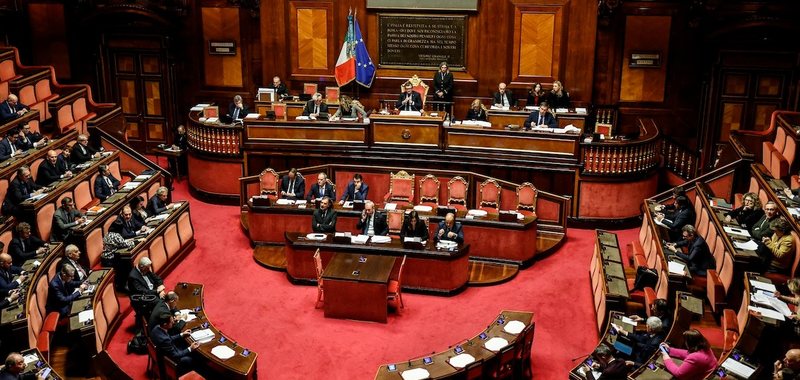Energy prices hit Southeast Europe - Big difference with the Northwest of the continent, investments needed

For Athens restaurant owner Christos Kapetanakis, rent has always been high, but now he must deal with what he calls "a second rent" as high electricity bills are cutting into his profits and forcing him to raise prices.
Kapetanakis pays between 3,000 and 3,800 euros a month for electricity alone, a 40% increase since Russia invaded Ukraine in 2002 and caused an energy crisis across Europe. Electricity used to account for 3% of monthly turnover, but now accounts for more than 15%. “The continued rise in prices, especially in the tourism sector... will make Greece less competitive compared to other Mediterranean countries,” he said from his restaurant in the historic Plaka district.
Its plight has reverberated across the continent since the war in Ukraine cut off Russian gas supplies to Europe and forced countries like Greece to seek more expensive alternatives. But southeastern Europe has felt the impact much more than the continent's northwest. Experts say the problem is getting worse as winter approaches and will have a negative effect on economic growth.
Wholesale energy in Greece and Italy during August last year was 12 times higher than in the Nordic countries and even dwarfed other Southern European countries that were experiencing hot weather.
Since 2021, Greece has spent 11 billion euros on energy subsidies in an effort to protect customers. In 2022, spending reached 5.3% of gross domestic product, by far the highest level among European Union countries and double that of second-place Italy, according to France-based energy consultancy Enerdata.
Despite official Athens' efforts to protect citizens from rising energy costs, the situation has deepened the cost of living crisis in Greece, following the 2009-2018 debt crisis that reduced wages, pensions and investments in energy production and transport.
“Rising energy prices and a negative impact on Gross Domestic Product are bringing about what happened a decade ago,” said Nikos Magginas, a senior economist at the National Bank of Greece. “Rising prices have a negative impact on household consumption and on the cost structure for industries, airlines and shipping,” he added.
The contrast between Southeast Europe and its neighbors comes from investment. While the northeast has power and gas lines that allow for easy transfer of energy between nations, as well as a strong mix of renewables, much of Southeast Europe is fragmented and isolated.
Energy storage, which is becoming increasingly important in northern European countries, is non-existent in parts of the southeast. Germany has 1,668 megawatts (MW) of large-scale storage capacity, compared to no megawatts in mainland Greece, according to data from LCP Delta, an Edinburgh-based energy consultancy.
“Southeastern Europe and the Balkans lack electricity interconnections. Whenever there is a power shortage and renewable production is low, these countries struggle to import the necessary volumes,” said Henning Gloystein, head of the energy, climate and natural resources division at Eurasia Group.
In contrast, renewable energy production in Spain has grown in the last decade, partly thanks to European Union funding. Spain produced almost 60% of its electricity from renewable sources in the first half of 2024, up from 51% the previous year.
“If you don't invest, energy prices will remain high,” Gloystein said.
Europe’s energy grid is in many ways a great success. In 2022, France increased imports from Germany as nuclear power production declined. When Russian gas supplies to Europe via Ukraine were cut off in late 2024, the impact on energy prices was softened because the bloc had found other alternatives.
But for some, more needs to be done. After energy prices rose in Greece last summer, Prime Minister Kyriakos Mitsotakis wrote to the European Commission demanding a solution to the “unacceptable” differences in electricity costs across Europe.
Greece is not alone. Much of the Balkans relies heavily on fossil fuels, and the regional energy system is weak. Last June, a massive power outage hit Montenegro, Bosnia, Albania, and Croatia when the grid was overloaded by the demand for air conditioning during a heat wave.
Kosovo, which generates more than 90% of its energy from coal, is trying to catch up with the rest of Europe in installing more renewable sources.
In December, Kosovo announced an auction to install 100MW of wind power capacity. But the World Bank estimates that the country needs 100 times that much, at least 10 gigawatts of new capacity, to meet its goal of eliminating coal use by 2050. The transition is estimated to cost Kosovo 4.5 billion euros, a daunting sum for the country’s small economy.
Without sufficient cross-border integration and an increase in storage capacity, there is sometimes too much energy produced for a single market, forcing producers to limit supply.
“If the objective is to lower prices, the easiest way to do that is to increase the penetration of renewables or nuclear,” said Fabian Ronningen, an analyst at Rystad Energy.
At a time when Greece has no nuclear power plants, Aristotelis Aivaliotis, secretary general of the Ministry of Energy, is optimistic, noting that renewable energy production is increasing, two new gas-fired power plants will come online this year and energy storage batteries will be built by 2028.
Future plans also call for energy connections with Italy, Albania and Turkey to be improved by 2031 at a cost of around 750 million euros. “Wholesale prices will gradually fall ... and this will definitely be passed on to consumers,” Aivaliotis told Reuters.
But Greek consumers are not convinced. Taxiarchis Fekas, who lives in an Athens suburb, is struggling to pay for his three children's school fees because their energy bills are so high. He is asking his children to reduce their laptop and tablet usage to save energy, a difficult request for young children who are inseparable from technological devices. "We are very close to becoming a financially struggling family. The government needs to pay attention," he said.

"TikTok refugees" find new shelter - Chinese social media, RedNote downloaded by about 700,000 Americans within 1 week
News that the US government and several other governments, including the Albanian one, are banning TikTok in their countries has led many users of the......

Which countries have banned TikTok and why?!
While the United States is likely to become the first country to completely ban TikTok, many others are concerned about the platform's ties to China. The......

10 billion euros for data centers - Italy doubles investments for the period 2025-2026
Investment in Italy's data centers will double to 10 billion euros in the period 2025-2026, compared to the previous two years. The data comes from a......

Canada, Carney runs for prime minister - Former Central Bank governor enters race to replace Trudeau
Former Bank of Canada Governor Mark Carney announced he would run to replace Prime Minister Justin Trudeau as leader of the ruling Liberal Party, saying he......

AIPS-EURO, record transactions in 2024 - BoA: 30.5% more transfers in the European currency than in 2023
The year 2024 closed with a balance many times higher than 2023, in terms of the number and amount of transactions carried out through the AIPS system. The......

BP cuts over 5% of workforce - The move aims to reduce costs and restore investor confidence
British Petroleum will cut more than 5% of its global workforce as part of CEO Murray Auchincloss' efforts to cut costs and rebuild investor confidence in......

"New financial support for agritourism" - Rama: New program combined with soft loans and grants ready
Prime Minister Edi Rama has once again called on emigrants to live and invest in Albania. According to the Prime Minister, a new program will soon be......

OpenAI asks US for investment in AI - According to the company, more funds are needed to dominate the sector
OpenAI has presented its vision for the development of artificial intelligence in the US, saying the country needs foreign investment and supportive......


















